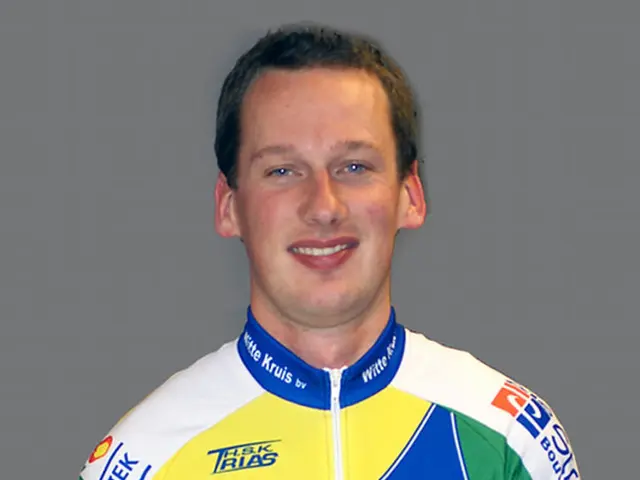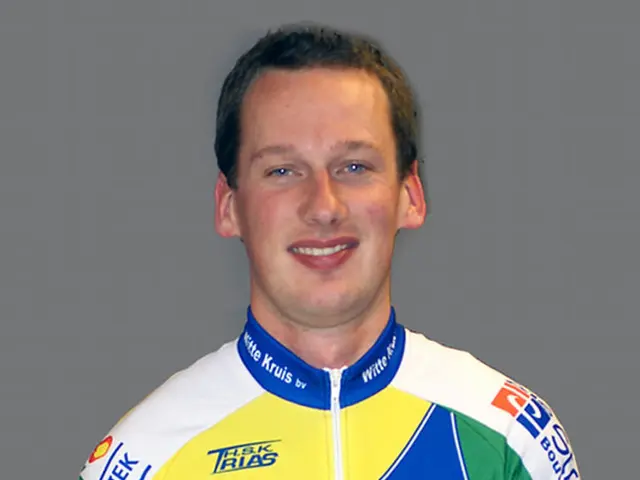Prognosis limitation in end-of-life care: High Health Authority deems it 'impracticable' to set a 'near-term' survival expectation in the bill for assisted dying legislation.
Loosening the Grip of Time: France's Controversial Approach to Assisted Dying
In a thrilling twist to the ongoing controversy surrounding end-of-life decisions, the High Authority for Health (HAS) has recently declared that it's unfeasible to determine who might benefit from assisted dying based on a patient's medium-term life prognosis or advanced disease stage. This bold move comes as the HAS purposely avoids any reference to the medium term in the context of assisted dying.
"There's no medical consensus" to accurately predict a patient's life span when they have several months to years remaining, the HAS stated, following three intense months of study at the behest of the Ministry of Health. Healthcare professionals currently evaluate a patient's life prognosis using tools that are "insufficiently reliable" and "shrouded in uncertainty" beyond a few hours or days, according to experts.
The criterion of a medium-term life prognosis was initially included in Catherine Vautrin's 2024 bill, but it was later deemed too vague. This criterion was replaced by "advanced or terminal phase of a serious and incurable disease" in the bill that will be debated in parliament starting May 19.
Escaping the Prognostication Pitfall
This latest HAS opinion further strengthens the decision to dismiss any reference to the medium term. More broadly, the independent authority discourages conditioning access to assisted dying on an "individual temporal prognosis." "The 'advanced phase' is not a mere temporal concept, as it does not refer to the timing of death but to the nature of care," the HAS affirms.
"The 'advanced phase' can be defined as the onset of an irreversible process that affects the patient's health status and quality of life, resulting in a deterioration."
The HAS's working group emphasizes the importance of ensuring the patient is offered a supportive process before any potential request for assisted dying, focusing on a "process of accompaniment and collective deliberation, centered on the patient." The group advocates "escaping the logic of 'prediction'" and "avoiding any proceduralization of the end of life," to instead focus on "the question of the meaning of what is lived and what remains to be lived... via a long-term anticipation approach."
European Perspective: A Mixed Bag
European countries with legalized assisted dying generally demand:
- Terminal illness or unbearable suffering: Most require a prognosis of incurable illness causing unbearable suffering without hope of improvement (Netherlands/Belgium)[3].
- Voluntary request: Repeated, informed consent from a mentally competent adult[3][5].
- Medical oversight: Participation of multiple physicians to confirm eligibility and ensure due process[3].
Italy, with its limited practice, permits assisted suicide for irreversible patients on life support following a 2019 Constitutional Court ruling. Recent Tuscan legislation (February 2025) mandates completion within 47 days at regional health facilities, raising concerns over uneven regional access[5].
France's 2024–2025 bill aims to:- Broaden eligibility: To adults with grave and incurable illness causing intractable physical or psychological suffering – potentially including non-terminal conditions[2][4].- Improve palliative care: Critics argue it favors euthanasia over enhancing palliative care infrastructure, unlike Belgium's dual approach[2][4].- Ensure procedural safeguards: Likely requiring multiple medical consultations and a cooling-off period, though the specifics remain undefined[4].
Clashing Viewpoints
- Scope: France's emphasis on psychological suffering goes beyond the physical focus of Italy or Spain.
- Timing: Tuscany's 47-day window contrasts with France's undefined timeframe and broader eligibility[5][4].
- Infrastructure: French proposals lack dedicated funding comparable to Tuscany's €10,000/year allocation for assisted suicide logistics[5][2].
The debate centers on striking the right balance between autonomy and the perceived "slippery slope" risk, particularly in cases that aren't terminal.
The High Authority for Health (HAS) in France has declared that it's unfeasible to determine who might benefit from assisted dying based on a patient's medium-term life prognosis or advanced disease stage, due to the lack of medical consensus in predicting a patient's life span accurately.
Healthcare professionals currently evaluate a patient's life prognosis using tools that are "insufficiently reliable" and "shrouded in uncertainty" beyond a few hours or days, according to experts.
The criterion of a medium-term life prognosis was initially included in Catherine Vautrin's 2024 bill, but it was later deemed too vague and replaced by the "advanced or terminal phase of a serious and incurable disease" in the bill to be debated in parliament starting May 19.
The HAS discourages conditioning access to assisted dying on an "individual temporal prognosis," and the 'advanced phase' is not a mere temporal concept, as it does not refer to the timing of death but to the nature of care.
The HAS emphasizes the importance of a supportive process before any potential request for assisted dying, focusing on a "process of accompaniment and collective deliberation, centered on the patient." The group advocates "escaping the logic of 'prediction'" and "avoiding any proceduralization of the end of life," to instead focus on "the question of the meaning of what is lived and what remains to be lived... via a long-term anticipation approach."
European countries with legalized assisted dying generally demand terminal illness or unbearable suffering, voluntary request, and medical oversight, among other requirements. Italy, with its limited practice, permits assisted suicide for irreversible patients on life support following a 2019 Constitutional Court ruling, and recent Tuscan legislation mandates completion within 47 days at regional health facilities.
France's 2024–2025 bill aims to broaden eligibility to adults with grave and incurable illness causing intractable physical or psychological suffering, potentially including non-terminal conditions. The debate centers on striking the right balance between autonomy and the perceived "slippery slope" risk, particularly in cases that aren't terminal.
There's a need for healthcare professionals, policymakers, and the public to engage in meaningful discussions surrounding healthcare, education, and personal growth to make informed decisions about health-and-wellness, fitness-and-exercise, mental-health, therapies-and-treatments, learning, sports, sports-betting, and sports-analysis. Furthermore, war-and-conflicts, career-development, policy-and-legislation, politics, general-news, and crime-and-justice can have profound impacts on individuals' decisions and opportunities for self-development and personal growth.
Education-and-self-development, personal-growth, and mental-health are interconnected, as learning can provide tools for managing stress, improving relationships, and fostering resilience. On the other hand, accidents, trauma, and migration can significantly impact one's life trajectory and require support for coping and healing.
Therefore, it's crucial to address the social determinants of health, such as policy-and-legislation, financing of healthcare systems, and the equity in access to healthcare resources, to ensure universal access to quality healthcare for all individuals with chronic-diseases, cancer, or other medical-conditions. In addition, certain groups and communities may require targeted interventions and resources to eliminate health disparities and promote health equity.
Science and medicine play an essential role in understanding, preventing, and treating various diseases, offering hope for those suffering from diseases like cancer or chronic diseases. However, there's ongoing debate about the role of science, ethics, and policy in healthcare, particularly when it comes to end-of-life decisions, euthanasia, and assisted dying. The debate isn't just limited to France, with various perspectives and approaches among European countries, but it also extends to other global regions grappling with similar issues related to health, wellness, and human rights.









